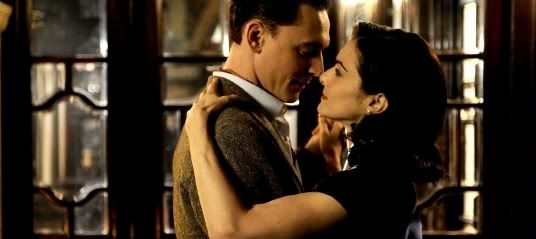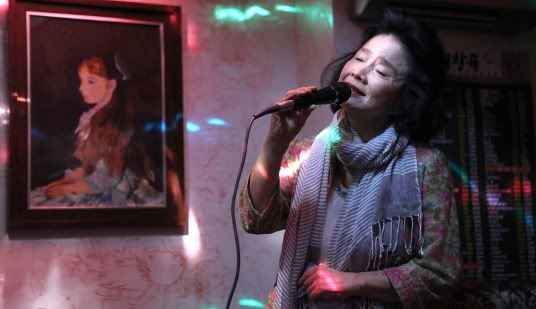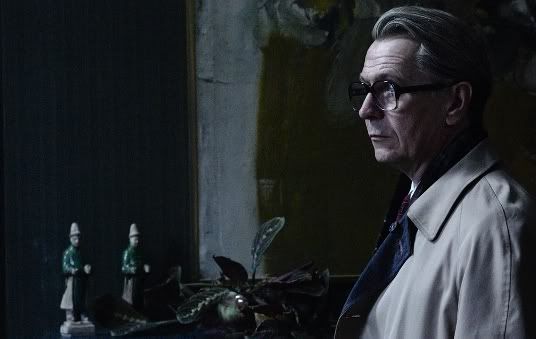I purposefully avoided the films that are already well-anticipated. There's no need for me to join in the chorus trumpeting Terence Malick's long-awaited Tree of Life. Similarly, it's unnecessary for me to go through the latest from Cronenberg (the Jung/Freud face-off A Dangerous Method), Fincher (The Girl with the Dragon Tattoo remake), Scorsese (the kid-friendly epic Hugo Cabret) and the double-dips from Soderbergh (Contagion and Haywire) and Spielberg (Tintin and War Horse). Never mind that I just did, but here's the off-the-radar films I'm looking forward to in 2011:
The Assassin (Taiwan, dir. Hou Hsiao-Hsien)
The Taiwanese director has been a regular at Cannes and has consistently produced films that are at once epic and intimate (A City of Sadness, The Puppetmaster). His latest follows a female assassin who was kidnapped as a child and trained to kill ruthlessly. Even though the hit[wo]man-in-existential-crisis genre has worn out its welcome somewhat, I'm a sucker for a good one and this one might be it.

The Deep Blue Sea (U.K., dir. Terence Davies)
Based on a 1952 British play, The Deep Blue Sea stars Rachel Weisz as the suicidal wife of an alcoholic former R.A.F. pilot who strikes up a friendship with another social outcast. The plot sounds a bit stuffy (it was previously adapted as a 1955 Vivien Leigh-Kenneth More film), but Weisz is an actress who always bring a natural warmth to her roles. She's made a few clunkers recently, particularly The Lovely Bones, but she's a welcome screen presence.
Detachment (U.S., dir. Tony Kaye)
Tony Kaye has had a rough time of it since 1998's American History X, a heartwrenching film about broken families and intolerance and a personal favorite. Films were held up in legal battles, found new directors or simply didn't get much attention. The plot for this one — a chronicle of teachers and administrators' struggles in an inner-city school — doesn't inspire much confidence. But the director and the cast, including Adrien Brody, Bryan Cranston, Marcia Gay Harden and Mad Men's Christina Hendricks, do.
Melancholia (Denmark, dir. Lars von Trier)
No slight against her as an actress, but the presence of Kirsten Dunst is the only thing that gives me pause about this one. It’s probably a function of her affinity toward difficult, niche audience films (Marie Antoinette, How to Lose Friends, All Good Things), but they always seem to have troubled productions that delay release for several years. This one, from self-conscious provocateur Lars von Trier (the abominable Antichrist), takes a ground-level view of a When Worlds Collide-style apocalypse. Seems right up Trier’s alley. As long as there’s no genital mutilation or self-martyrdom, I’m up for it.
Now (U.S., dir. Andrew Niccol)
Since producing his sci-fi masterpiece Gattaca, Niccol has had a slew of long-gestating, problematic or just plain failed productions. S1m0ne and Lord of War had a lot of good qualities, but both felt undercooked. His Salvatore Dali biopic never got off the ground and he’s been attached to every project imaginable, including a non-Twilight Stephanie Meyer adaptation. With a very young cast, including Amanda Seyfried and Justin Timberlake, he seems to be shooting for Meyer’s audience. But the plot — about a future where everyone is immortal and time is traded as currency — is fascinating.

Poetry (South Korea, dir. Lee Chang-dong)
If the reviews out of last year’s Cannes Film Festival are to be believed, Poetry should be as richly textured as Lee Chang-dong’s Secret Sunshine, which finally made it stateside last year. Lee, a novelist and former South Korean Minister of Culture and Tourism, just has a way with heartbroken characters. He doesn’t coddle them or his audience, but the compassion just oozes off the screen. In this one, a lonely old woman rediscovers beauty through poetry.
Retreat (U.S./U.K., dir. Carl Tibbets)
Info about first-time director Carl Tibbets and co-writer Janice Hallett is hard to come by, but the cast and plot description for Retreat are tantalizing. Cillian Murphy and Thandie Newton play a couple who escape to an remote island to patch up their failing relationship. With the sudden arrival of a lone soldier, Jamie Bell, they learn news of a pandemic that’s threatening the rest of humanity. Sounds like an episode of "The Twilight Zone" or "Alfred Hitchcock Presents," but I like that. The cast, all three promising actors with apparently very lazy agents, should make for a good time.
Shame (U.K., dir. Steve McQueen)
Hunger was one of the best films I saw in 2009 and probably one of the best ever made. It's a sparse film that lays all of its cards out on the table one by one. It's subtle and unpretentious and has a lot to offer the patient viewer. I'm trying to temper my expectations for McQueen's sophomore film, about a freewheeling bachelor (Michael Fassbender) whose wayward sister (Carey Mulligan) comes to live with him. Haven't had much luck with that.

Tinker, Tailor, Soldier, Spy (U.K./France, dir. Tomas Alfredson)
This latest adaptation of John le Carré's Cold War spy novel replaces Alec Guinness with the perpetually under-utilized Gary Oldman. Colin Firth, Tom Hardy and Ciarán Hinds, meanwhile, are on hand in supporting roles. To top it all off, Let the Right One In author-director Tomas Alfredson is in the director's chair. I'm not as big a spy-fan as I am a hitman-fan, but this has the makings of an awesome film.
We Need to Talk about Kevin (U.K., dir. Lynne Ramsay)
She hasn't gotten nearly as much attention from audiences, or critics for that matter, as she should, but Lynne Ramsay is already among the modern maestros of film. Ratcatcher was a cruel and beautiful look at death and poverty through the eyes of a young boy. Morvern Callar, meanwhile, defies an easy description. It's been nine years since those films, which is an awfully long time to wait. Hopefully this one, about the mother (played by Tilda Swinton) of a teenaged mass murderer, will break through despite similarly difficult subject matter.

No comments:
Post a Comment